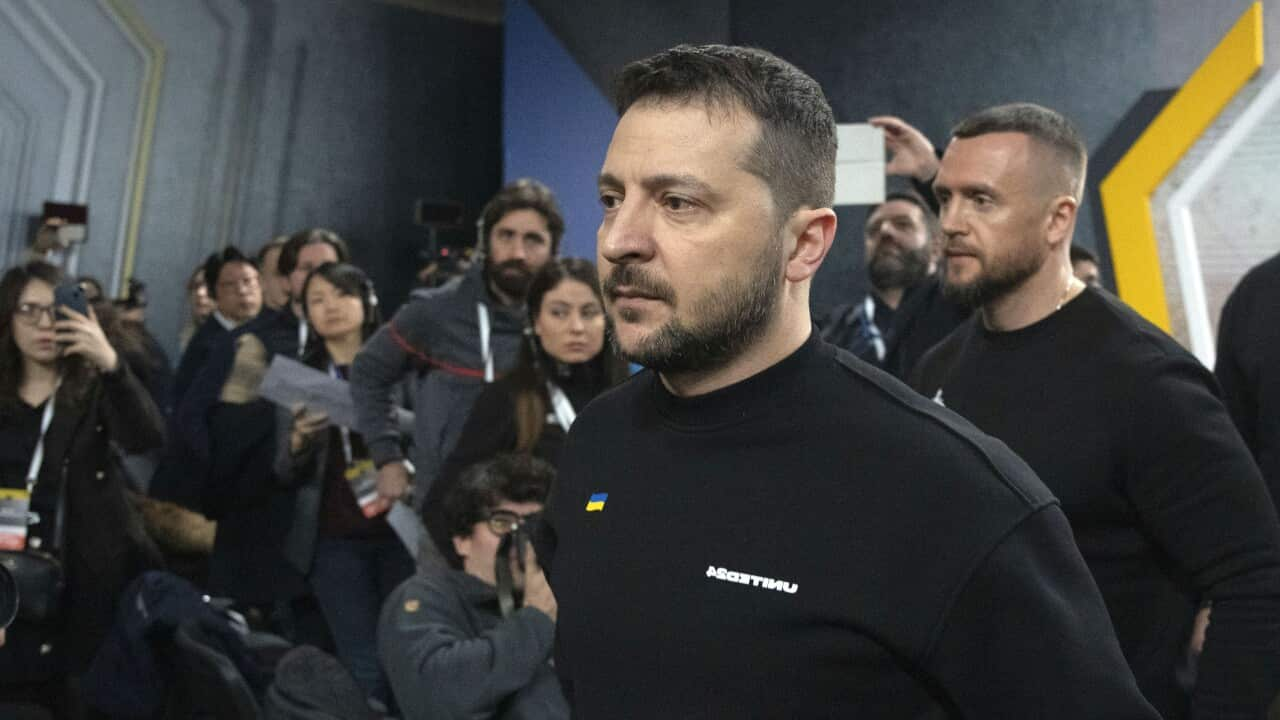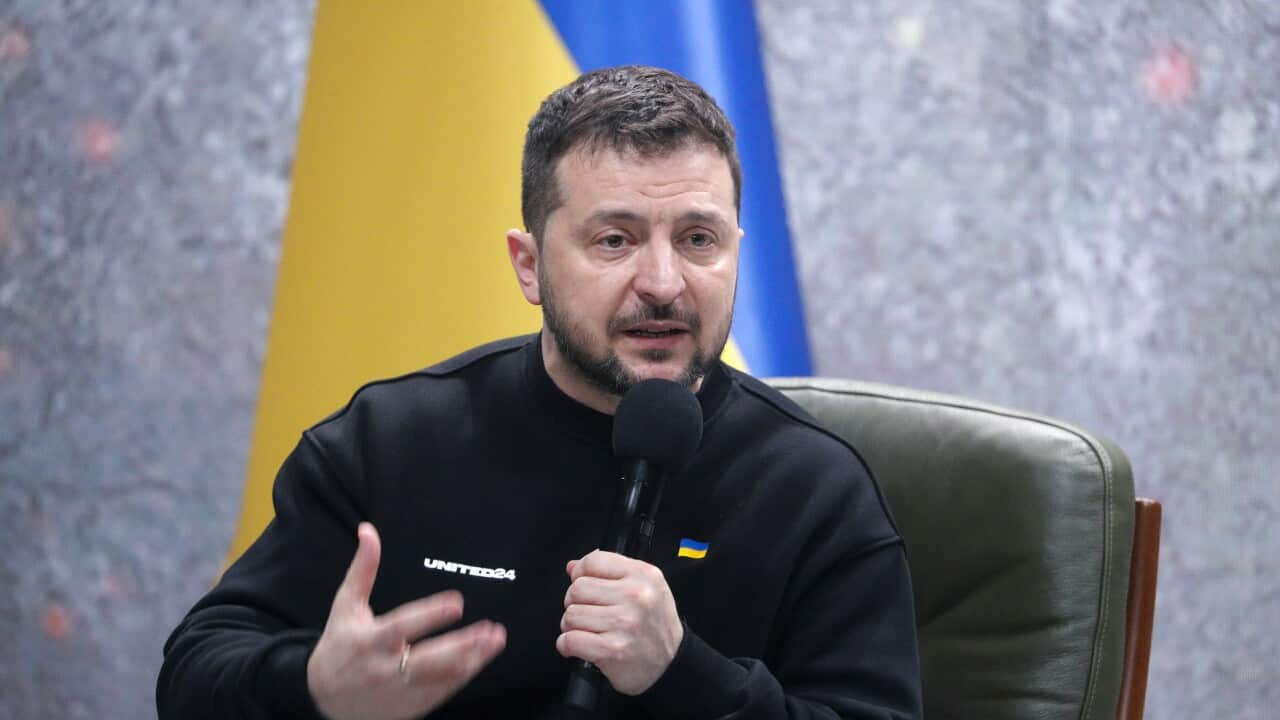Key Points
- Ukraine's leader says he is open to considering parts of China's 12-point ceasefire plan.
- China claims to have a neutral stance in the war that began one year ago.
- Mr Zelenskyy suggested that China's help could be useful in trying to isolate Russia.
Ukraine's leader has given qualified support for China's new pronouncements about the war in his country, saying Chinese interest is "not bad".
"China has shown its thoughts. I believe that the fact that China started talking about Ukraine is not bad," President Volodymyr Mr Zelenskyy said at a news conference on the first anniversary of the Russian invasion on Friday.
"But the question is what follows the words. The question is in the steps and where they will lead to."
China called for a ceasefire and peace talks between Ukraine and Russia in a vaguely worded proposal released on Friday that analysts said was unlikely to deliver results.
Mr Zelenskyy said there were points in the Chinese proposals that he agreed with "and there are those that we don't".
"But it's something," he added.
He added that he planned to meet Chinese President Xi Jinping but did not say when such a meeting might take place.
"I plan to meet Xi Jinping and believe this will be beneficial for our countries and for security in the world," Mr Zelenskyy said.
'Neutral stance'
China claims to have a neutral stance in the war that began one year ago but has also said it has a "no limits friendship" with Russia and has refused to criticise Russia's invasion of Ukraine or even refer to it as an invasion.
It has accused the United States and its allies of provoking the conflict and "fanning the flames" by providing Ukraine with arms.
Still, Mr Zelenskyy suggested that China's help could be useful in trying to isolate Russia.
"Our task is to gather everyone to isolate the one," he said.
The plan released by China's foreign ministry mainly reiterated long-held positions and analysts said China would be an unlikely broker.
It calls for the "sovereignty, independence and territorial integrity of all countries" to be respected but does not say what will happen to the territory Russia has occupied since the invasion.
It also calls for an end to "unilateral" sanctions on Russia, indirectly criticises the expansion of the NATO military alliance and condemns threats of nuclear force.
Speaking after China issued the paper but without referring to it, Zhanna Leshchynska, charge d'affaires at the Ukrainian embassy in Beijing, said her country did not want peace at any price.
"We will not agree to anything that keeps Ukrainian territories occupied and puts our people at the aggressor's mercy," Leshchynska told a gathering at the European Union mission to China marking the anniversary of the invasion.
The Russian government said on Friday that it appreciated China's plan and said it was open to achieving the goals of what it calls its "special military operation" through political and diplomatic means.
"We appreciate the sincere desire of our Chinese friends to contribute to resolving the conflict in Ukraine by peaceful means," Foreign Ministry spokeswoman Maria Zakharova said, adding however that this would also mean recognising "new territorial realities" in Ukraine.
Ukraine's allies express scepticism
US National Security Adviser Jake Sullivan said on CNN that his first reaction to the proposal was that "it could stop at point one, which is: Respect the sovereignty of all nations."
He added: "This war could end tomorrow if Russia stopped attacking Ukraine and withdrew its forces... This was a war of choice".
German government spokesman Wolfgang Buchner said the Chinese proposal contained several important points but was missing a key one: "first and foremost the withdrawal of Russian troops from Ukraine".
China abstained on Thursday when the United Nations General Assembly approved a non-binding resolution that calls for Russia to end hostilities in Ukraine and withdraw its forces.
The 12-point paper also urges measures to prevent attacks on civilians and civilian facilities, keep nuclear facilities safe, establish humanitarian corridors for civilians and ensure the export of grain after disruptions pushed up global food prices.
It also called for an end to the "Cold War mentality" - China's standard term for what it regards as US hegemony, and maintenance of alliances such as NATO.
"Dialogue and negotiation are the only viable solution to the Ukraine crisis," the proposal said.











